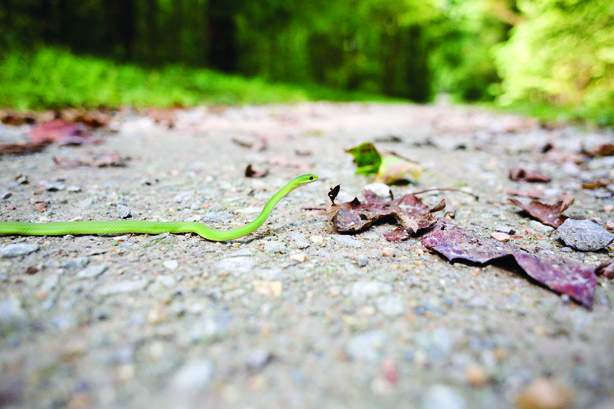The U.S. Forest Service began restricting vehicles on the road more than 40 years ago
If you haven’t visited Shawnee National Forest’s Snake Road, officially known as Forest Service Road No. 345, while closed to automobile traffic, you are in a bit of luck because the road, which was scheduled to reopen to vehicular traffic October 31, will remain closed until November 6.
News Release: Snake Road Closure Extended Through November 5 HARRISBURG, IL. (November 1, 2018) – Snake Road, located…
Posted by U.S. Forest Service – Shawnee National Forest on Thursday, November 1, 2018
The reason for the extra week of closure is due to late-season warm weather, which delayed the annual migration of reptiles and amphibians to their winter habitat.
“Due to recent warm weather, there are still a significant number of amphibians and reptiles moving in the area,” the U.S. Forest Service wrote in a press release. “Delaying the road opening until November 6th would reduce vehicular mortality for the migrating wildlife. Please use caution when visiting this remarkable area of the Forest.”
9 Days On Shawnee National Forest's Snake Road Of Illinois
Called Snake Road by the locals, the road attracts reptile and amphibian lovers from throughout the United States to see all the animals on their annual migration.

CYRENE KREY/Shutterstock
A rough green snake crosses a road in Shawnee National Forest.
The U.S. Forest Service began restricting vehicles on the road more than 40 years ago. In those times, unfortunately, hunters would come and shoot virtually every snake that they could as they made their annual trek. That is no longer the case, and the annual closures (the road is also closed in the spring for one month to allow the animals to move to their summer habitats), are a great time to see the variety of reptiles and amphibians that call the area home.



